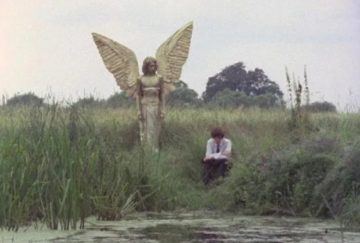Andy Battle in Boston Review:
 I remember the first time I ever saw a ghost. I was tiptoeing through the remnants of a burnt-out row house in Washington, D.C., in one of the neighborhoods where, in the 1990s, one could still discern the architectural scars from the urban rebellions meant to avenge the assassination of Dr. Martin Luther King, Jr., thirty years before.
I remember the first time I ever saw a ghost. I was tiptoeing through the remnants of a burnt-out row house in Washington, D.C., in one of the neighborhoods where, in the 1990s, one could still discern the architectural scars from the urban rebellions meant to avenge the assassination of Dr. Martin Luther King, Jr., thirty years before.
Stepping gingerly over charred beams, scanning the scattered furniture, my eye landed on a toy—a doll, lying relatively unscathed amidst the debris. In an instant I saw the house as it had been, in its unburnt serenity. A family had lived there. Children grew up there. Psyches, fortunes, relationships germinated in this place. Fortunes that were not mine, lives given their shape by the monstrous hammers of class and race in America. The image I saw—the past I made—awakened questions. What happened to these people? Where had they gone? Why were there so many houses like this one, abandoned and empty in a city where so many lacked homes? That was probably the day I decided to become a historian.
Historians live a good deal of their lives in the past. In doing so, one realizes how many ways there are to inhabit it. The past can serve variously as wellspring, shelter, or cage. There are many pasts to live, as well—personal pasts and political pasts, individual and collective ones. Oftentimes we live them all at once.
More here.
